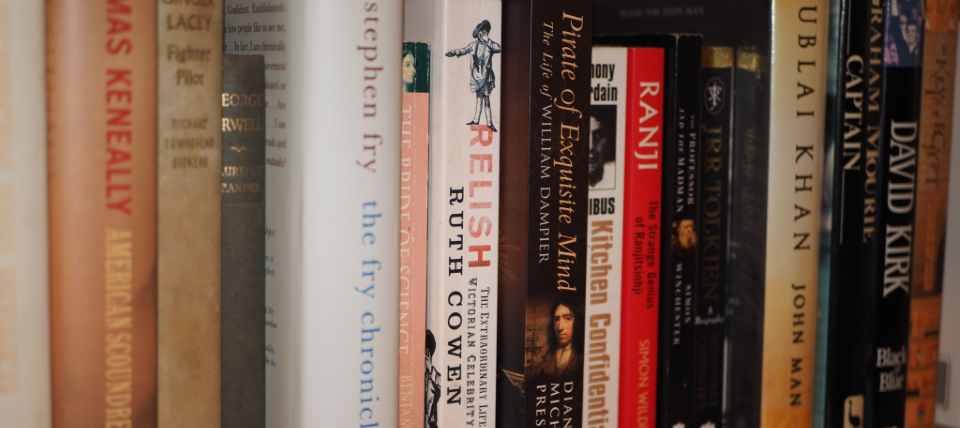As more and more purchasing moves online I have already lost one pleasure: browsing record stores looking for music I’ve never heard of. I would rifle through LPs and CDs, reading lyric sheets and listening to a track or two in the shop; I was completely outside of the usual circut of reading Rip It Up or imports of NME to decide what I might like. It introduced me to a fair bit of the music I love, albeit in haphazard fashion, but also allowed my taste to develop largely unhindered by what music was appropriate to whatever pose I was supposed to want to strike.
While record stores have become scarcer and scarcer, book stores have not yet faded so dramatically. I first came across Murakami in a Paper Plus, of all places, with the collected volumes of 1Q84 inviting me to try him out. It’s emblematic of the downside of this haphazard approach to discovery that my first reaction to 1Q84 was to lament that I hadn’t encountered his work before.
South of the Border, West of the Sun has a number of differences to the Murakami I’ve read thus far. For one thing hints of the surreal and fantastical are largely absent from the story; compared to Sputnik Sweetheart or Hard Boiled Wonderland and the End of the World it is grounded in an apparently straightforward world; for another Hajime is a largely unsympathetic take on Murakami’s standard character template.
That last point makes the most significant difference in tone for me; it’s hardly original to note that many of Murakami’s central characters are cut from much the same cloth: a socially awkward loner who possesses some notable but largely underused academic ability, single, possessing a love of some Western art form, and unable to connect effectively with a woman (or women) he longs for. Indeed, a certain profound, general, ineffectiveness is the norm for the protagonists I’ve encountered.
In Hajime’s case he is presented as a more classic tragic figure: on the surface he has overcome many of these standard shortcomings to achieve: his group of successful bars and restaurants are the embodiment of his interest in and taste for music. His marriage is characterised as happier and more honest than the norm; he enjoys his children and gets on well with his father-in-law. His flaw, though, his longing for a lost love and everything associated with it, is the dramatic centre in the novel, but also the reason that he is unsympathetic. Most of the takes I’ve read on Murakami’s basic template have been of the protagonist as the outsider, and he is a sympathetic outsider, while here Hajime seems compelled to throw himself from a happy life into a disaster of his own making. Tragic, yes, but like Macbeth, I find it hard to see the likelihood of impending disaster as anything other than a poor reflection on the character driving himself to it.
That’s not to say I found the novel in any way unsatisfactory. Murakami’s meditations on growth and loss, the nature of happiness, and the reconciliation of fantasy and life as it is make for a fulfilling read, and it is delivered in his (and his translator’s!) languid, careful, detailed style.
